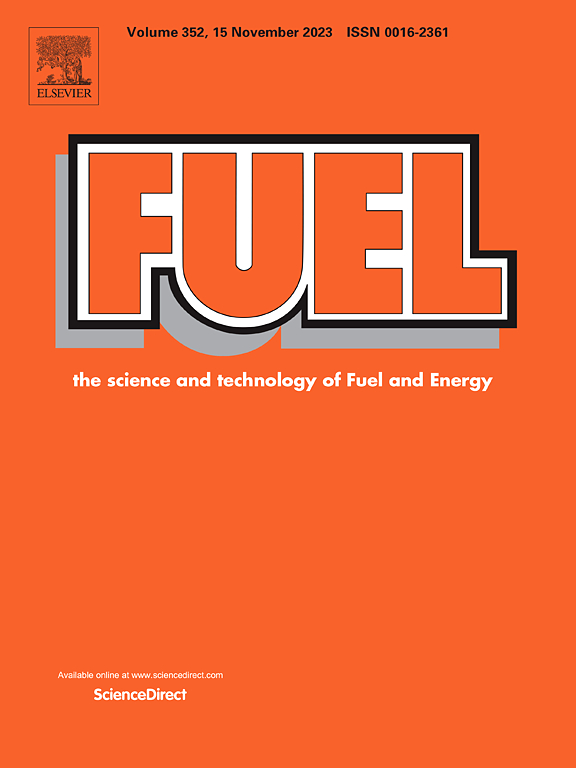A simplified reaction model for combustion of ammonia
IF 6.7
1区 工程技术
Q2 ENERGY & FUELS
引用次数: 0
Abstract
Research on ammonia combustion is gradually attracting widespread interest. Developing a simple, widely applicable, and reasonably simplified reaction model for ammonia combustion is of great significance for computational fluid dynamics (CFD) research. This study simplifies the detailed reaction model using the Directed Relation Graph method with Error Propagation and Full Species Sensitivity Analysis method. Then, sensitivity analysis is used to identify crucial reactions that influence combustion characteristics, while genetic algorithms are employed to optimize the kinetic parameters of these reactions. In heat insulation steady perfectly stirred reactor simulation, and 1-D premixed laminar flame simulation, the simplified model is compared with the detailed model. It is found that the simplified model provides reasonable predictions for species concentration, gas temperature, and flame velocity across a wide range of premixed gas equivalence ratios (0.6 ∼ 1.4), oxygen concentration (21 %∼100 %), and temperature (300 K ∼ 500 K). In cases of elevated oxygen concentrations, the prediction error of the simplified model increases but remains within acceptable limits. The prediction of the simplified model in a CFD simulation is also close to that of the detailed model. Moreover, the simulation time cost is reduced by 48.11 %, demonstrating the efficiency of the simplified model in conserving computational resources. In an unsteady closed homogeneous (0-D) simulation, however, the simplified model could only accurately predict the ignition delay time when the oxygen concentration of the premixed gas is greater than 40 %.
氨燃烧的简化反应模型
有关氨燃烧的研究正逐渐引起广泛关注。建立一个简单、广泛适用且合理简化的氨燃烧反应模型对计算流体动力学(CFD)研究具有重要意义。本研究采用带误差传播的有向关系图法和全物种敏感性分析法简化了详细的反应模型。然后,利用灵敏度分析确定影响燃烧特性的关键反应,并采用遗传算法优化这些反应的动力学参数。在隔热稳定完全搅拌反应器模拟和一维预混合层流火焰模拟中,将简化模型与详细模型进行了比较。结果发现,在预混合气体当量比(0.6 ∼ 1.4)、氧气浓度(21 % ∼ 100 %)和温度(300 K ∼ 500 K)的较大范围内,简化模型对物种浓度、气体温度和火焰速度的预测都很合理。在氧气浓度升高的情况下,简化模型的预测误差会增大,但仍在可接受的范围内。简化模型在 CFD 模拟中的预测结果也与详细模型接近。此外,模拟时间成本减少了 48.11%,这表明简化模型在节约计算资源方面非常有效。然而,在非稳态封闭均质(0-D)模拟中,简化模型只能准确预测预混合气体氧气浓度大于 40% 时的点火延迟时间。
本文章由计算机程序翻译,如有差异,请以英文原文为准。
求助全文
约1分钟内获得全文
求助全文
来源期刊

Fuel
工程技术-工程:化工
CiteScore
12.80
自引率
20.30%
发文量
3506
审稿时长
64 days
期刊介绍:
The exploration of energy sources remains a critical matter of study. For the past nine decades, fuel has consistently held the forefront in primary research efforts within the field of energy science. This area of investigation encompasses a wide range of subjects, with a particular emphasis on emerging concerns like environmental factors and pollution.
 求助内容:
求助内容: 应助结果提醒方式:
应助结果提醒方式:


